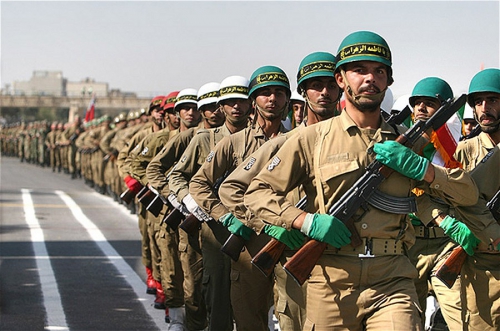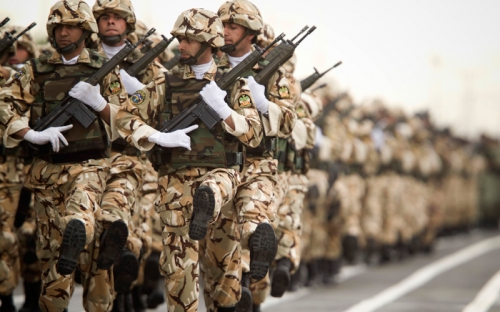If many have mocked Ali Reza Zakani’s comments on Saudi Arabia’s imminent fall and what he described as the “disintegration of Al Saud tribe” last September, branding his boasting of Iran’s political successes in the region as overblown and groundless, others would argue that the prominent Iranian political analyst actually hit the nail right on the head.
Looking back at recent developments in the Middle East over the past month alone – the rise of the Houthis in Yemen, Bahrain revolution, the sentencing to death of Sheikh Nimr Al Nimr, ISIS advances in Iraq and Syria, and it has become blaringly apparent that political, social and religious fractures have appeared across the Middle East, all pointing and adding to the erosion of Al Saud empire.
While Saudi Arabia has dominated the Arab and to an extent the Islamic world ever since the mighty fall of the Ottomans, aided and abated by both the British Empire and the United States on account of its royals’ willingness to remain pliable to western will, Al Saud’s political exclusionism as well as religious ostracism have created a situation today whereby the kingdom has become its worse own enemy.
Al Saud’s Petrodollars
Propelled into hegemonic prominence on the basis of its immense wealth alone, Saudi Arabia’s petrodollars are all which have sustained the kingdom’s intrinsic institutional, political and religious architecture. While it is Saudi Arabia’s billions of dollars which have allowed Al Saud to direct and control nations, governments and policies from afar, leaning and pulling, carving and crushing politicians and ideas as it went along implementing its vision for the Middle East; the kingdom has become enslaved to its ability to finance its alliances.
As it happens, Saudi Arabia could soon face a dramatic economic U-turn. As noted by Nick Butler in the Globalist, Saudi Arabia appears to have lost control of the Oil market, at a juncture when prices have experienced an unparalleled drop due to stock piling. “The Saudis may no longer be in a position to reverse the price fall,” wrote Butler, adding that negative political and economic outlooks within the OPEC would make any global output restriction policy impossible to implement, thus putting Saudi Arabia under a great deal of pressure.
“It’s hard to think of any OPEC state, except perhaps Kuwait, in a position to accept a sustained cut in production and revenue. The Saudis are on their own. “
Victims of its own political and economic miscalculations, Al Saud could have actually started the very fire which soon could threaten to lay waste its house and crumble Gulf monarchies to the ground.
Should Saudi Arabia prove unable to financially sustain its proxy states and finance its proxy wars in the region – Al Saud has opened up multiple fronts without being able to resolve any conflicts so far: Yemen, Syria, Iraq, Egypt, Libya, Bahrain – it is likely it will find itself cornered by the very powers which rose from the frictions it gave out and the vacuums it inadvertently helped created.
Unmistakably Turkey and Iran have both seen their prominence gain traction since 2011, their powers boosted by Saudi Arabia’s political stumbling.

Running out of time
As nations call for political emancipation while others have entered into a bitter fight against Islamic radicalism, the Middle East as we know it is undergoing a massive restructuration and power re-mapping.
As Zakani so eloquently put it, “Three Arab capitals have today ended up in the hands of Iran and belong to the Islamic Iranian revolution … and Sana’a has become the fourth Arab capital that is on its way to joining the Iranian revolution.”
While the Houthis of Yemen – faction organized under the leadership of Abdel-Malek Al Houthi – would argue that they are not under anyone’s control, but rather fiercely independent, the Zaidi faction – oldest branch of Shia Islam – is undeniably leaning on Tehran for support and guidance, just as the Hezbollah of Lebanon or more recently Baghdad have done.
But unlike Saudi Arabia which has ruled as would a monarch over its political vassals, it is Iran’s non-interference policy, its keenness to advise and not direct, to support while not dictate which has made the Islamic Republic so appealing and its ideological umbrella so inclusive.
Just as Saudi Arabia has ruled through fear, playing the hammer and the sword against all those it views as its subject-nations, Iran has in perfect polarity presented itself the alternative.
Now that so many have joined together to denounce Saudi Arabia’s hegemony and tyrannical rule, it appears Al Saud ‘s edifice has begun to show signs of erosion, its foundation strained by increasing political, economic, social and religious pressures.
All that made Saudi Arabia so formidable is slowly unravelling – Its standing as a religious guide has been tarnished by allegations it helped master-minded the evil which is ISIS, its economy stands on the verge of collapse, its society is imploding under the strain of sectarianism and social injustice and its position as the regional super-power has been challenged by Iran and Turkey.
Iran Grand Jihad
Following his tirade on Saudi Arabia’s pending dissolution unto nothingness, Zakani spoke before parliament of what he referred to as Iran’s phase of “Grand Jihad”, pointing to Iran’s intent to project and export its Islamic revolutionary model onto the greater region, in order to bring about what it understands as political, social and religious emancipation within the parameters of the Muslim faith.
Jihad here is not to be understood as a synonym for war, but rather an ideological campaign. Interestingly, religious scholars have often argue that the real Jihad, as the Scriptures intended has nothing to do with open war but rather “soft conversion”.
Zakani pointed out that this phase of Grand Jihad “requires a special policy and a cautious approach because it may lead to many repercussions,” underscoring the very lacking and lagging Saudi Arabia fell victim to in its race for control and blind belief money would ultimately speak louder.
A keen strategist, Zakani actually advised that Iran “supports movements that function within the Iranian revolution’s framework in order to end oppression and assist the oppressed in the Middle East.” In other words Iran will act a leader of nations not a despot or a dictator of policies.
Unlike Saudi Arabia, Iran wants to become the axis of change, the promoter of political transition.
Before the Islamic Revolution – 1979 – the Middle East was divided up in between two polarities within the American axis: Saudi Arabia absolute theocracy and secular republican Turkey. Came into the equation a manifestation of political Shia Islam framed under a republican system.
Three decades on and Turkey has but become a shadow of its former secular self and Saudi Arabia is facing dissent in the face. As for Iran, it has, despite foreign animosity and economic sanctions, seen its pull on the region expands exponentially, its impetus fed by the ever-increasing vacuum left by those powers who thought themselves too grand to ever fall.
“There are now two poles, the first is under the leadership of the United States and its Arab allies and the second is under the leadership of Iran and the states that joined the Iranian revolution’s project,” stressed Zakani.
Regardless of one might feel toward Iran or whatever prejudices one chooses to hold on to vis a vis the Islamic Republic, the Middle East of today is more Persian that it ever was.
Catherine Shakdam is the Associate Director of the Beirut Center for Middle Eastern Studies and a political analyst specializing in radical movements, exclusively for the online magazine “New Eastern Outlook”.
First appeared: http://journal-neo.org/2014/11/12/the-disintegration-of-the-saudi-empire-and-the-new-iranian-axis/





 del.icio.us
del.icio.us
 Digg
Digg
Les commentaires sont fermés.